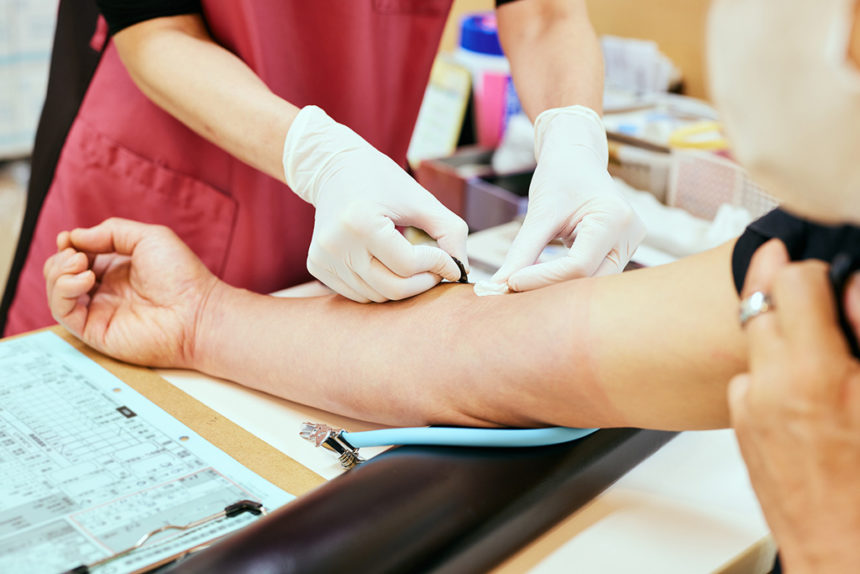The Food and Drug Administration is considering allowing more gay and bisexual men to donate blood, according to reporting by The Wall Street Journal Wednesday morning.
Since 1985, the federal health agency has banned men who have sex with men from donating blood. The FDA stated that this ban was due to “the strong clustering of AIDS illness and the subsequent discovery of high rates of HIV infection in that population.”
A plethora of evidence has demonstrated that men who had sex with other men don’t have any higher prevalence of HIV infection.
In 2015, the FDA loosened the policy to a one-year deferral from having sex with other men. This deferral was later shortened to three months in response to the COVID-19 pandemic, which shut down thousands of blood drives in early 2020.
Less than 40% of the U.S. population is eligible to donate blood, according to data compiled by the Community Blood Center, and less than 10% donate annually. Additionally, the American Red Cross estimates that approximately 29,000 units of red blood cells are needed every day in the U. S.
The reporting stated that a potential policy change could occur in the next few months and would require all potential donors to complete an individualized risk assessment form, similar to a system Canada adopted earlier this fall. The form would ask donors uniform questions and avoid those related to gender or sexual orientation or activity, though The Wall Street Journal noted that FDA officials are still drafting what the new guidance would look like.
For decades, LGBTQIA+ advocacy groups and healthcare organizations like the American Medical Association and the American Red Cross have lobbied the FDA to change its longstanding policy. This push has come into greater focus in recent years amid critical blood shortages exacerbated by the COVID-19 pandemic.
During Pride Month, Tinder and the Human Rights Campaign partnered to end so-called blood bans involving members of the LGBTQIA+ community in the U.S.
In an accompanying op-ed, Tinder CEO Renate Nyborg wrote that the blood bans “make no sense” in the wake of widespread HIV/AIDS prevention, detection and treatment efforts.
“We know that the sustainable, predictable supply of blood necessary for hospitals to perform lifesaving care depends on how powerful institutions address this issue. The FDA’s policy needs to change now, for everyone’s benefit,” Nyborg wrote.







